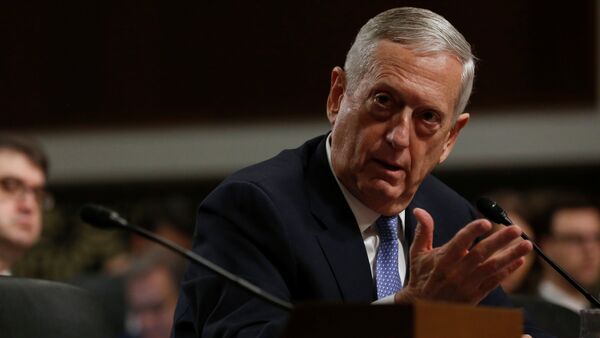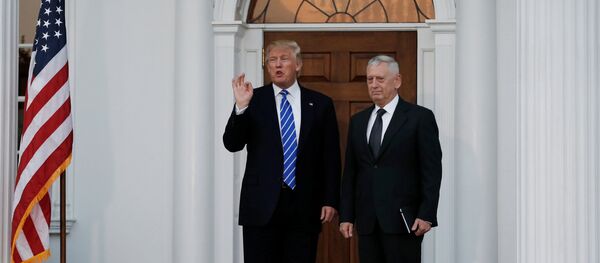In his Senate hearing, Mattis, a Marine Corps general who retired in 2013 and whom Trump has nominated as secretary of defense, has criticized Russia saying that it "had chosen to be a strategic competitor [to the US], an adversary in key areas."
Mattis said he was "all for engagement" with the Russians, but he warned of an "increasing number of areas in which we will have to confront Russia."
Commenting on the rhetoric of the US' next defense secretary, Russian military expert and defense analyst Retired Colonel Victor Litovkin explained why Mattis could not have said anything else.
"The military views of James Mattis are simple and clear. He thinks that America should continue occupying the leading international position and remain the world's strongest country, imposing its will on other countries," he told Radio Sputnik.
He further suggested that as the US Congress is predominantly Russo-phobic, neither he nor the nominee for the secretary of state have been left much of a choice what to say about Russia.
"They have to demonstrate their determination to fight against Russia as the "major threat to the US," and this explains their rhetoric," he said.
Their further moves will depend on President Donald Trump, he suggested. As the US secretary of defense, he said, is under direct command of the commander-in-chief, which is the president.
Moreover, he added, such warmongering rhetoric often signifies that a certain agency or department needs to get approval for the increase of its budget.
"The Pentagon is in constant need of money despite the current size of its budget, which is $600 billion, Mattis is trying to get more."
However he further admitted that Mattis is held in high regard within the Pentagon.
"He has real weight in the US military. It is not by chance that he was nicknamed Mad Dog. He said a while ago that he likes to kill, which is a demonstration of an image of a "brave cowboy" who will stop at nothing to achieve his goal," the expert said.
This view has been echoed by Andrei Suzdaltsev, the deputy head of the Faculty of World Economy and International Relations at the Moscow-based Higher School of Economics.
"It would have been very strange for the nominee to say he wanted a strong friendship with Russia, his candidacy would have been simply turned down," he told RIA Novosti.
"The Russian elite, Russian establishment, Russian political class should understand that Russia and the US do differ in their major political interests. Washington will pursue the idea of a unipolar world where it has the final say on all major decisions," he said.
The political scientist added that the discrepancies between Russia and the US at a regional level, in the Middle East, at the post-Soviet space, in Europe and Asia remain in place and thus the two countries will continue experiencing difficulties.
Never miss a story again — sign up to our Telegram channel and we'll keep you up to speed!






